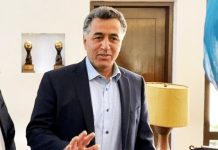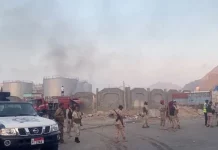By Uzma Zafar
ISLAMABAD: Prime Minister Imran Khan and Uzbekistan President Shavkat Mirziyoyev Wednesday held wide-ranging talks and exchanged views on bilateral, regional and international issues.
In their first virtual summit, the two leaders reviewed the entire spectrum of bilateral relations with particular focus on political, trade, security and defence, educational and cultural domains.
Prime minister Khan underlined the importance of enhancing political and diplomatic linkages, fast tracking trade and economic cooperation, ensuring early finalization of the Preferential Trade Agreement (PTA) and Transit Trade Agreement (TTA), increasing security and defence cooperation, and taking steps to deepen mutual collaboration in the fields of education, culture and tourism. He also underscored the importance of rail, road and air connectivity and highlighted the enormous potential that existed in diverse fields to build an expanded mutually-beneficial partnership. The prime minister highlighted Pakistan’s economic security paradigm and the shifting focus to geo-economics.
He also stressed that Central Asia was a region of particular focus in this vision. During the summit, the level of progress on the Trans-Afghan Railway Line Project, agreed between Pakistan, Uzbekistan and Afghanistan earlier this year, was reviewed.
The project would be a first step in linking the Central Asian transport network with Pakistani seaports of Gwadar, Karachi and Qasim.
Prime minister Khan said that, once completed, the initiative would transform the geo-economic dynamics of the entire regime. The two leaders also discussed important global and regional matters of mutual interest, and reaffirmed the commitment to continue supporting each other at all international and regional fora, including the UN, OIC, SCO and ECO.
Prime minister Imran Khan apprised on the latest situation in Indian Illegally Occupied Jammu and Kashmir (IIOJK), shared Pakistan’s perspective on issues of peace and security in South Asia, and underlined the imperative of peaceful resolution of the Jammu & Kashmir dispute.




